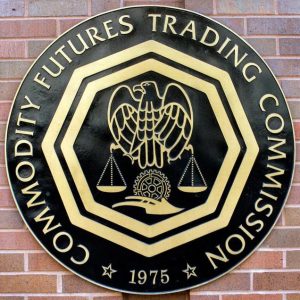
On the day it announced charges in a binary options scheme, the Commodities Futures Trading Commission also announced a video series on binary options fraud.
The CFTC announced it was filing a complaint in US federal court against Blue Bit Banc for running a fraudulent binary options scheme involving a virtual currency called ATM Coin.
“The Commodity Futures Trading Commission (CFTC) announced the filing of a Complaint in the U.S. District Court for the Eastern District of New York charging Defendants Blake Harrison Kantor, who frequently uses the alias Bill Gordon, and Nathan Mullins, both of New York, and the entities Blue Bit Banc, located in the United Kingdom, Blue Bit Analytics, Ltd.(Analytics) located in Nevis, Turks, and Caicos, and Mercury Cove, Inc. and G. Thomas Client Services (G. Thomas),” the CFTC said in a statement,“both New York corporations, with operating a fraudulent scheme involving binary options and a virtual currency known as ATM Coin.
“The CFTC’s Complaint, filed on April 16, 2018, also charges Blue Wolf Sales Consultants, a New York company owned by Kantor, as a Relief Defendant for receiving customer funds. In addition, the CFTC’s Complaint charges Kantor, Blue Bit Analytics, and G. Thomas Client Services with accepting customer funds and illegally acting as Futures Commission Merchants without being registered with the CFTC. The Complaint also alleges that the Defendants acted as a common enterprise in carrying out their fraudulent scheme.”
Binary option “is (a) type of option in which the payoff is structured to be either a fixed amount of compensation if the option expires in the money, or nothing at all if the option expires out of the money.”According to the website Investopedia.
Binary options can be traded legally only on properly registered exchanges; the NADEX and the Cantor Exchange are the only two registered exchanges for binary options while the CBOE and other exchanges trade binary options among baskets of other options.
Most scams involve binary options which are traded off exchange, which is not legal in the US.
The announcement was made shortly after the CFTC announced a new video series entitled: The Truth Behind Binary Options Fraud
The brand-new video is nearly seven minutes in length and included two victims- a retiree named Lowell Enlow and even a professional trader named Nick Morrison.
Binary options fraudsters create professional looking websites, trading software is often fake and so are the “profits you think you’re making.”
Fraudsters use search engine, emails, and popular investor websites to advertise.
These advertisements promise high rates of return, often more than 100%, and use fake testimonials.
The fraudsters also hire “call operators trained in aggressive sales tactics and complicated market speak.”
Fraudsters often ask for small amounts of money to open the account, as little as a few hundred dollars.
Once a trader sees a gain or attempts to withdraw, fraudsters then employ numerous tactics to increase the trading amount.
These tactics include: 1) a call from an “expert broker” to help make even more money by trading for the client 2) They offer to match the dollar amount put in for the next trade 3) they offer an insurance policy to cover losses
While these things are ongoing, the credit card used to open the account is drained, in some cases the fraudsters engage in identity theft
Victims are then unable to withdraw their money or are charged for withdrawals, the broker on the account suddenly has left the company and the terms can’t be honored, including the insurance purchased, all messages suddenly go unanswered.
The CFTC said that if someone experiences any of these issues trading binary options they should call them.









